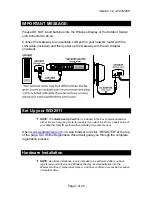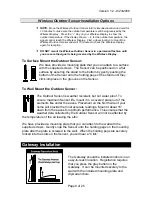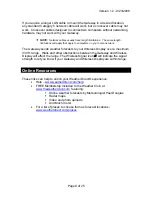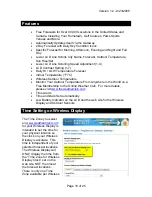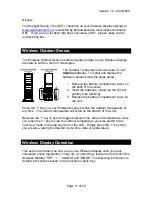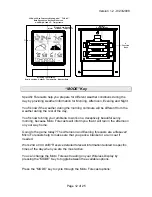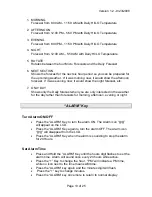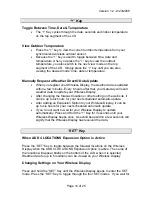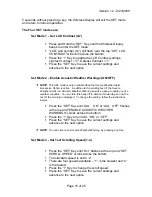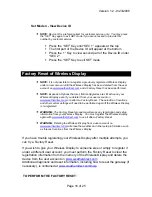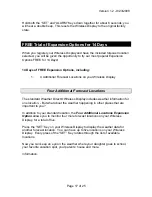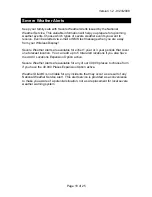
Version 1.2 - 9/23/2008
Page 21 of 25
Care and Maintenance
•
Extreme temperatures, vibration and shock should be avoided as
these may cause damage to the unit and give inaccurate readings.
•
Precautions shall be taken when handling the batteries. Injuries, burns,
or property damage may be resulted if the batteries are in contact with
conducting materials, heat, corrosive materials or explosives. The
batteries shall be taken out from the unit before the product is to be
stored for a long period of time.
•
Immediately remove all low powered batteries to avoid leakage and
damage. Replace only with new batteries of the recommended type.
•
When cleaning the display and casings, use a soft damp cloth only. Do
not use solvents or scouring agents as they may mark the LCD and
casings.
•
Do not submerge the unit in water. Furthermore, fix all parts in place
where the units are adequately protected against moisture and rain.
•
Special care shall be taken when handling a damaged LCD display.
The liquid crystals can be harmful to user's health.
•
Do not make any repair attempts to the unit. Return them to their
original point of purchase for repair by a qualified engineer. Opening
and tampering with the unit may invalidate their guarantee.
•
Never touch the exposed electronic circuit of the device as there is a
danger of electric shock should it become exposed.
•
Do not expose the units to extreme and sudden temperature changes,
this may lead to reduce their accuracy.
•
Batteries are the single largest cause of customer support cases.
Please use plain
Alkaline
batteries in the Wireless Outdoor Sensor
testing no less than 1.48 on a voltmeter or with and expiration date 7
years in the future.
•
Rechargeable
“AA”
batteries may be used in the Wireless Display, but
NOT in the Wireless Outdoor Sensor.
Battery Low Icons
•
When the batteries need to be replaced in the Wireless Outdoor
Sensor, the LCD will display the “TX” icon.
•
When the batteries need to be replaced in the Wireless Display, the
LCD will display the “RX” icon.

